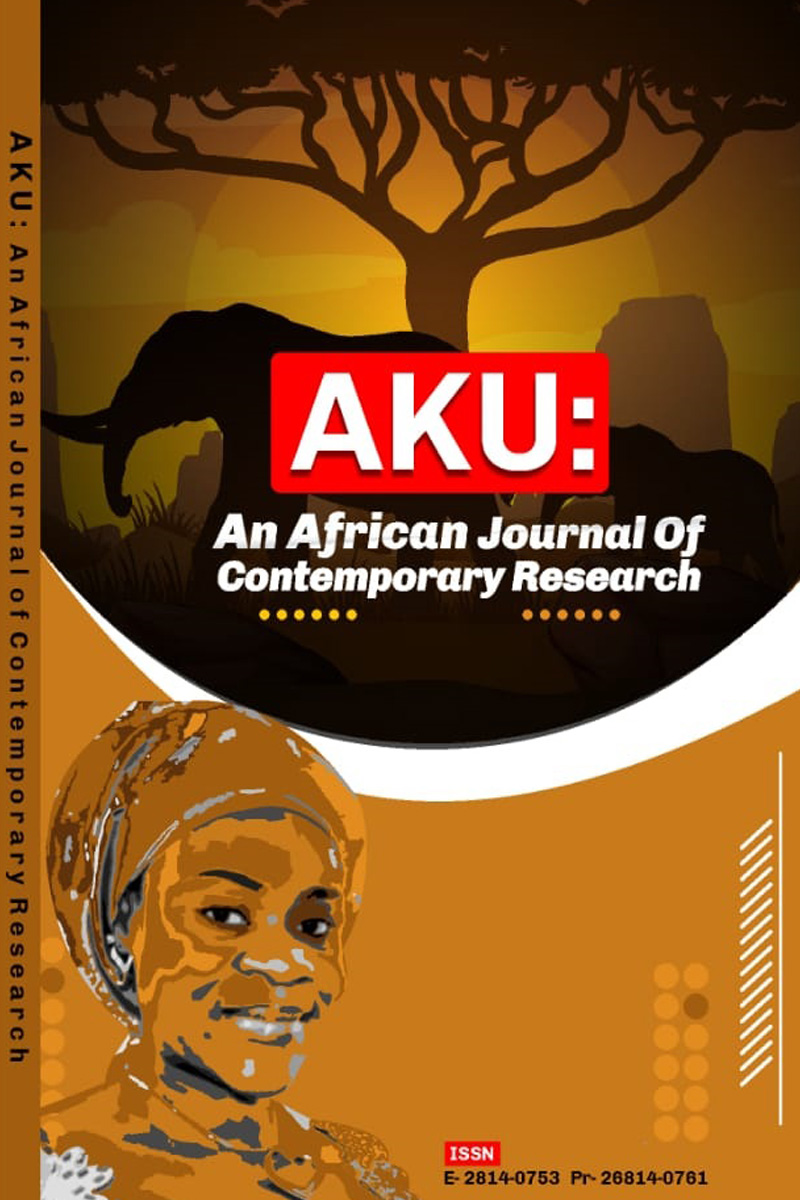 AKU - An African Journal of Contemporary Research (AAJCR) (Vol. 4 No. 2, 2023)
THE ROLE OF THE HUMAN BODY IN THE LIGHT OF THE FOURTH GOSPEL (Jn 1: 9-14.): AN EXEGETICAL REFLECTION
AKU - An African Journal of Contemporary Research (AAJCR) (Vol. 4 No. 2, 2023)
THE ROLE OF THE HUMAN BODY IN THE LIGHT OF THE FOURTH GOSPEL (Jn 1: 9-14.): AN EXEGETICAL REFLECTION
ABSTRACT
The prologue of Saint John's gospel affirms the reality of the Incarnation. It would not have been possible for the Second Person of the Blessed Trinity to coexist with us without voluntarily taking on our nature (Phil 2: 6-7) - the human body. He shared the human condition; except sin, and thus sympathize with our infirmities. We are bodily beings, men and women for eternity. In the words, there are truths which man is obliged to accept not because they are graspable but because these truths are required, and man is bound to accept them. These truths are called "mystery." Among these obvious truths, the incarnation occupies a place of honor. By implication, the human body is a mystery that cannot be totally fathomed, but its meaning and role can only be approximated and partially grasped. The mystery of the Incarnation authenticates the important role of the human body. St Anselm asked, "Cur Deus homo"? The answer to this question is not so simple. Is it necessary or even inevitable that Jesus should take the human body? Some Roman Catholic Church Theologians argues that; Jesus shared in our humanity so that we may share in His divinity. What is the role of the body such that Jesus also needed it? Reflecting on this problem posed by the Gospel of John; “Jn 1:9-14" is our entrance gate. The human body is sacred. By its Hebrew, Greek and Latin definitions, it is intertwined with the human person. My body is me. In other words, any abuse on the body is an abuse on the human person. In a similar vein, anything that undermines the integrity of the human body also underplays the dignity of the human person. The human body is not something to be used and abused as an object that has no value nor spiritual significance. Therefore, the thrust of this reflection is to identify, through exegetical methods, the role of the human body and the underlying issues in our text vis-a-vis the human body. The reflection is organized into four sections.

